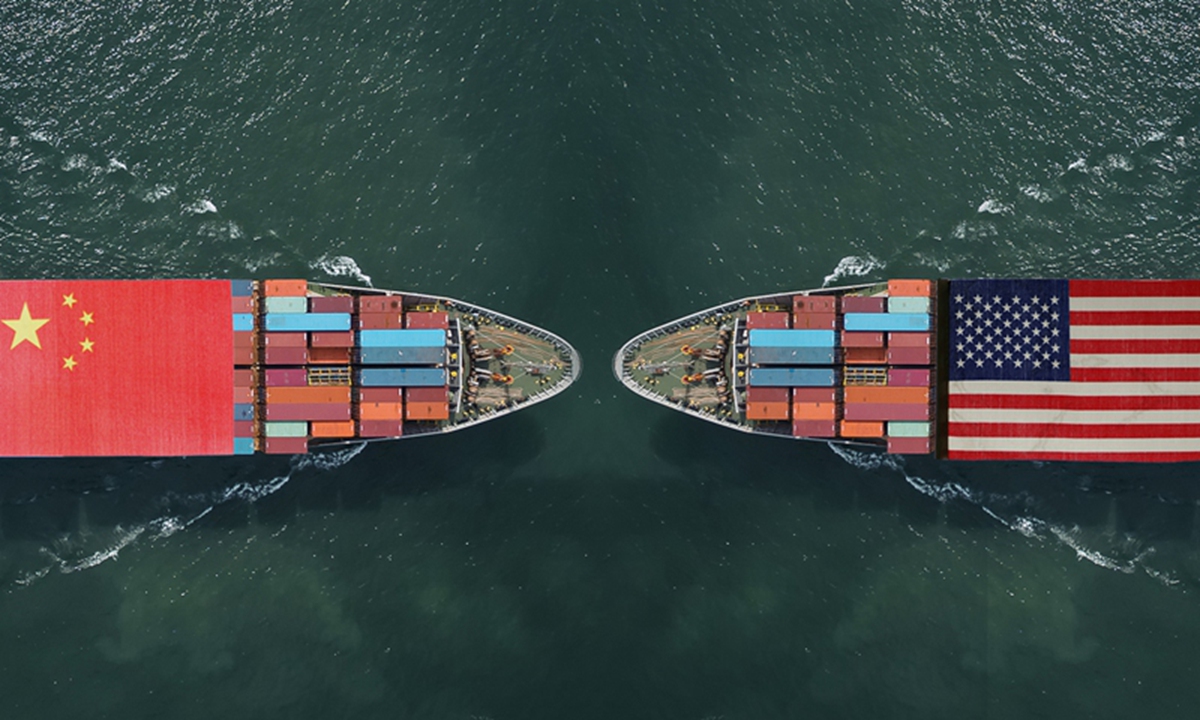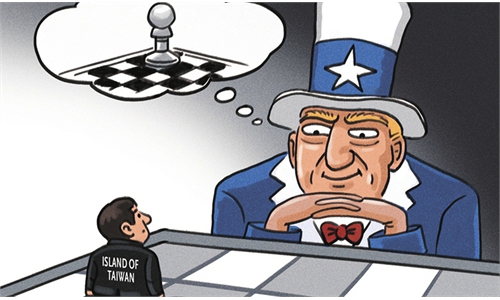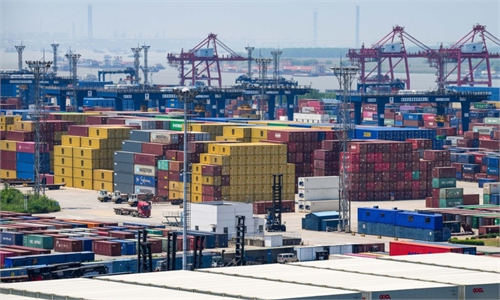
China US Photo:Global Times
There is a saying that nations are always better off when they choose to practice free trade, or buy and sell from one another freely. When a country opens up to unrestricted normal trade, capital and labor will shift, more efficiently and wisely too, toward those industries in which they are used.Although trade contributes to global efficiency and prosperity, these days international commerce can be one of the most contentious political issues leading to frictions between governments. Worrying signs of dissolving global trade links and economic integration, rising trade fragmentation and geopolitical tensions have raised the prospect of the "strategic competition" trumping the shared economic benefits of free trade.
For example, the former Donald Trump administration, for the purpose of containing China's economic growth, recklessly launched a war of tariffs to erect high barriers on trade with China. The current US government has inherited this highly discriminative tariff policy and even added more technology restrictions, aimed to block advanced semiconductor trade with China.
Recently, a congressionally convened commission in the US even called upon the Biden administration to review Chinese trade practices and "to suspend normal trade ties" if the review says China hasn't lived up to its promises under a 1999 trade pact, the Wall Street Journal reported on Tuesday. What the anti-China elements in Washington aspire to do is to erect more man-made barriers to restrict trade with China.
Kristalina Georgieva, head of the IMF, warned that a series of economic shocks has unleashed persistently high inflation, which is being coupled with central banks' tightening monetary measures, and will prompt a cost of living crisis in many countries around the world. The world faces rising risk of recession and a fundamental shift away from relative stability to "an age of breakdown in international relations," she said.
It is true that the global economy now faces severe challenges. Lingering effects of the novel coronavirus pandemic, elevated inflation, high energy and food prices, a strong US dollar, and tightening monetary policies are all darkening the global economic outlook. In terms of global growth, the worst is yet to come, and for many people around the world, 2023 could deliver a hastening downward spiral of their living standards.
The IMF predicted that it expects global growth to sharply plunge to 2.7 percent next year, with a 25 percent probability it could fall well below 2 percent, which will be the worst year in many decades.
Steven Barnett, the IMF's senior resident representative for China, recently said in a research essay that economic "losses will be even greater" if the world's major economies opt for "actual fragmentation" or "de facto decoupling." "Against the backdrop of tepid productivity growth around the world, we estimate output losses from trade fragmentation due to lower productivity," the essay reads.
One such sign of trade fragmentation pressure comes from restrictive measures which characterize Washington's protectionist trade policy, such as the tariffs tussle between the US and China in 2018 - launched by the Trump White House and resulting in the unprecedented trade war between the world's two largest economies. The high tariffs on $360 billion Chinese goods have contributed considerably to the elevated US inflation that hit more than 8 percent this year, worsening many American families' livelihood.
As a matter of fact, a number of American politicians in Washington choose to be intentionally oblivious to the merits and benefits of conducting bilateral trade - the most efficient way to improve people's living standards.
When a firm or an individual buys goods or service more cheaply abroad, it will lead to the fact that living standards in both countries increase. There are other reasons consumers and enterprises buy abroad that also make them better off, as the products may better fit their needs than similar domestic offerings.
On the other hand, policy uncertainty or disturbed policy settings related to trade can worsen economic activity as enterprises pause hiring and investment, and new enterprises may decide to postpone entry into a market.
In the past years, researchers in many countries and global organizations like IMF and World Bank have concluded that the huge benefits of reducing tariffs and removing other non-tariff barriers to trade are much larger than closed-door behavior, which often causes very low productivity, high cost of living, and the cocooned human mass of poverty.
An IMF analysis shows that a typical shock to trade policy, like the 2018 tariffs war between the US and China, reduces investment by 3.5 percent after two years. It also decreases GDP by 0.4 percent and raises the joblessness rate by 1 percentage point.
It is true that globalization process is facing increasing challenges. The world is at increasing risk of a more permanent fragmentation of the global economy into geopolitical blocs with varied technology standards, cross-border payment systems and reserve currencies.
The stakes are truly high. Rather than "decoupling" and fragmentation, the global economy needs free trade and investment to be an engine of growth. The world's major economies, typically the US, China and the EU, must shoulder the responsibility to lead the effort to strengthen the world's multilateral trade system.
Changing course calls for vision and courage. It will be very unfortunate if the US doesn't roll back its protectionist trade practices against China and other economies in the world, while continuing on its wrong path of stirring up geopolitical tensions and erecting even higher barriers to block free trade and investment.



